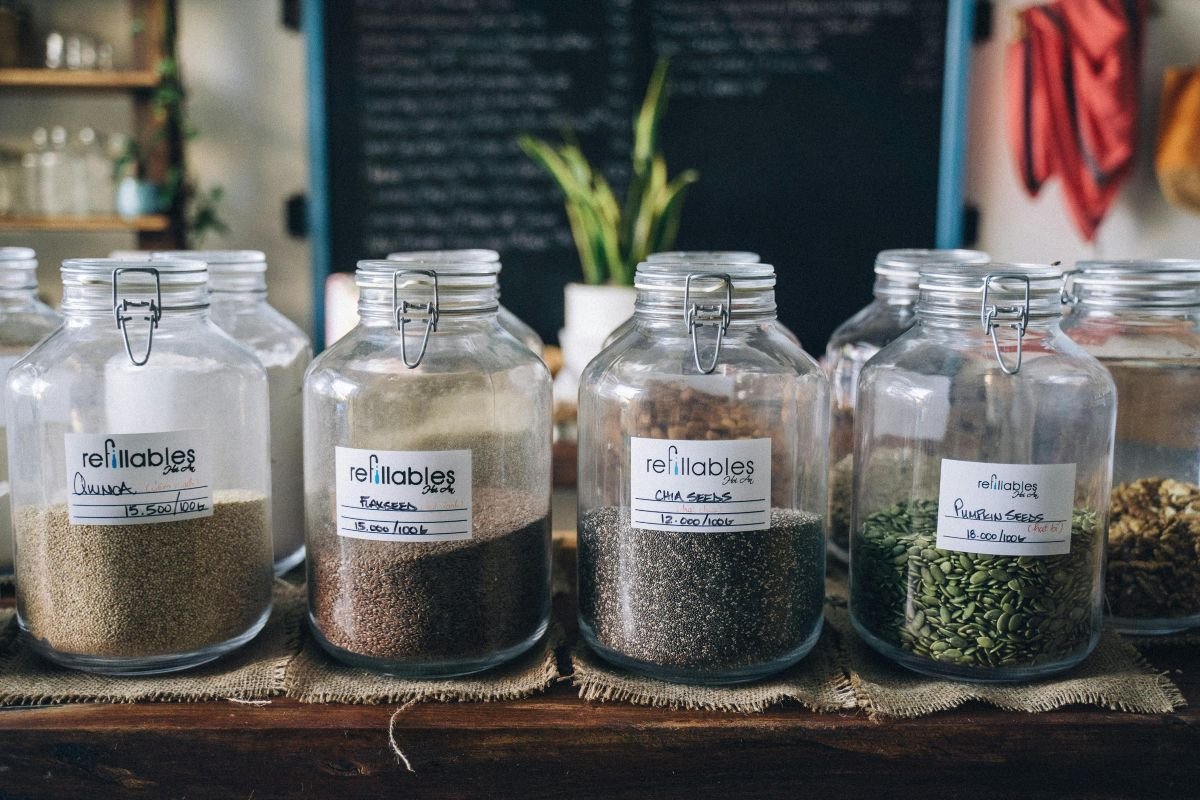Seed Cycling for Hormone Balance and Healthy Cycles
If you're looking for a simple, food-as-medicine approach to support your hormones, reduce PMS, or manage symptoms of PCOS, seed cycling could be worth a try. This gentle, wholefood-based method is gaining popularity, and emerging evidence supports its nutritional benefits for reproductive health.
What Is Seed Cycling?
Seed cycling involves rotating specific seeds during different phases of your menstrual cycle to align with your body’s hormonal shifts:
Follicular Phase (Days 1–14):
Ground flaxseeds and pumpkin seeds: to support oestrogen production and metabolism.Luteal Phase (Days 15–28):
Ground sesame seeds and sunflower seeds: to encourage progesterone production and reduce inflammation.
If your period is irregular or absent, follow the lunar cycle:
New Moon to Full Moon = flax and pumpkin
Full Moon to New Moon = sesame and sunflower
The Research Behind Seed Cycling
While the practice of seed cycling hasn’t been extensively studied as a whole, several clinical studies on the individual seeds provide a solid foundation for its use.
Flaxseeds: Lignans and Menstrual Regulation
Flaxseeds are rich in lignans, which have phytoestrogenic activity and may help balance oestrogen levels. In a recent 2023 study, overweight women who consumed flaxseeds daily for 12 weeks saw improved menstrual cyclicity and increased sex hormone-binding globulin (SHBG), supporting hormone balance and ovulation (Vaisman et al., 2023).
Pumpkin Seeds: Zinc for Ovulation and Androgen Regulation
Pumpkin seeds are high in zinc, which is crucial for ovulation and progesterone production. A randomised controlled trial found that zinc supplementation significantly improved testosterone levels, insulin resistance, and menstrual regularity in women with PCOS (Jamilian et al., 2019).
Sesame Seeds: Hormonal Modulation and Lipid Support
Sesame seeds also contain lignans and essential fatty acids. A placebo-controlled study in postmenopausal women found that 50g of sesame seeds daily significantly altered sex hormones and improved blood lipids, suggesting a beneficial effect on the endocrine system (Namiki, 2006).
Sunflower Seeds: Vitamin E and Luteal Support
Sunflower seeds provide vitamin E and selenium, both important for luteal phase support and progesterone production. A recent review highlighted sunflower seeds as a functional food with potential to assist in managing luteal insufficiency and improving fertility markers in women with PCOS (Kumar et al., 2024).
Hormone Conditions That May Benefit from Seed Cycling
PCOS
Flax and pumpkin seeds may support ovulation and reduce androgen excess, while sesame and sunflower seeds aid progesterone and luteal phase health.
PMS and Luteal Phase Deficiency
Nutrients like vitamin E, zinc, lignans, and healthy fats support mood, reduce cramps, and assist in progesterone production.
Coming Off the Pill
Seed cycling, paired with a nutrient-dense diet, can help support hormonal recovery post-pill, especially while cycles are re-establishing.
How to Do Seed Cycling
Days 1–14 (Follicular Phase):
1 tbsp ground flaxseed
1 tbsp ground pumpkin seed
Days 15–28 (Luteal Phase):
1 tbsp ground sesame seed
1 tbsp ground sunflower seed
Buy seeds whole and grind them fresh weekly for maximum nutrient availability. Store in the fridge or freezer. Add to smoothies, porridge, yoghurt, or homemade bliss balls.
Want to Support Your Cycle Naturally?
Download my Grocery List for Each Phase of Your Cycle handout - a free, evidence-informed guide to nourishing each stage of your cycle using wholefoods and strategic nutrients.
Want to balance your hormones naturally? Grab your free Seed Cycling for Hormone Health guide here.
Need Recipe Inspiration?
Try these hormone-friendly recipes:
5 Ingredient Seed Crackers Recipe: Fibre-rich, anti-inflammatory snacks to support oestrogen clearance.
Tahini & Miso Cookies: Sweet-salty sesame cookies, perfect for progesterone support in the luteal phase.
Tahini Fudge: Nourishing and rich in healthy fats, perfect for progesterone support and postpartum healing.
Flaxseed Crepes: Light, versatile and high in lignans to support oestrogen metabolism in the follicular phase.
References
Jamilian, M., Foroozanfard, F., Bahmani, F., Talaee, R., & Asemi, Z. (2019). The effects of zinc supplementation on clinical and metabolic status in women with polycystic ovary syndrome: A randomised, double-blind, placebo-controlled trial. Biological Trace Element Research, 191(2), 269–277. https://doi.org/10.1007/s12011-018-1625-x
Kumar, A., Singh, N., & Rao, P. (2024). Functional foods in managing PCOS: Emerging evidence on seeds and fertility. Nutrition & Health. https://www.sciencedirect.com/science/article/abs/pii/S2949824424000491
Namiki, M. (2006). Nutraceutical functions of sesame: A review. Critical Reviews in Food Science and Nutrition, 46(6), 463–476. https://pubmed.ncbi.nlm.nih.gov/16614415/
Vaisman, N., Shapiro, H., Shamir, R., Shany, S., & Afek, A. (2023). The effect of dietary flaxseed on hormonal levels and menstrual cyclicity in overweight women. Nutrients, 15(13), 2960. https://doi.org/10.3390/nu15132960


